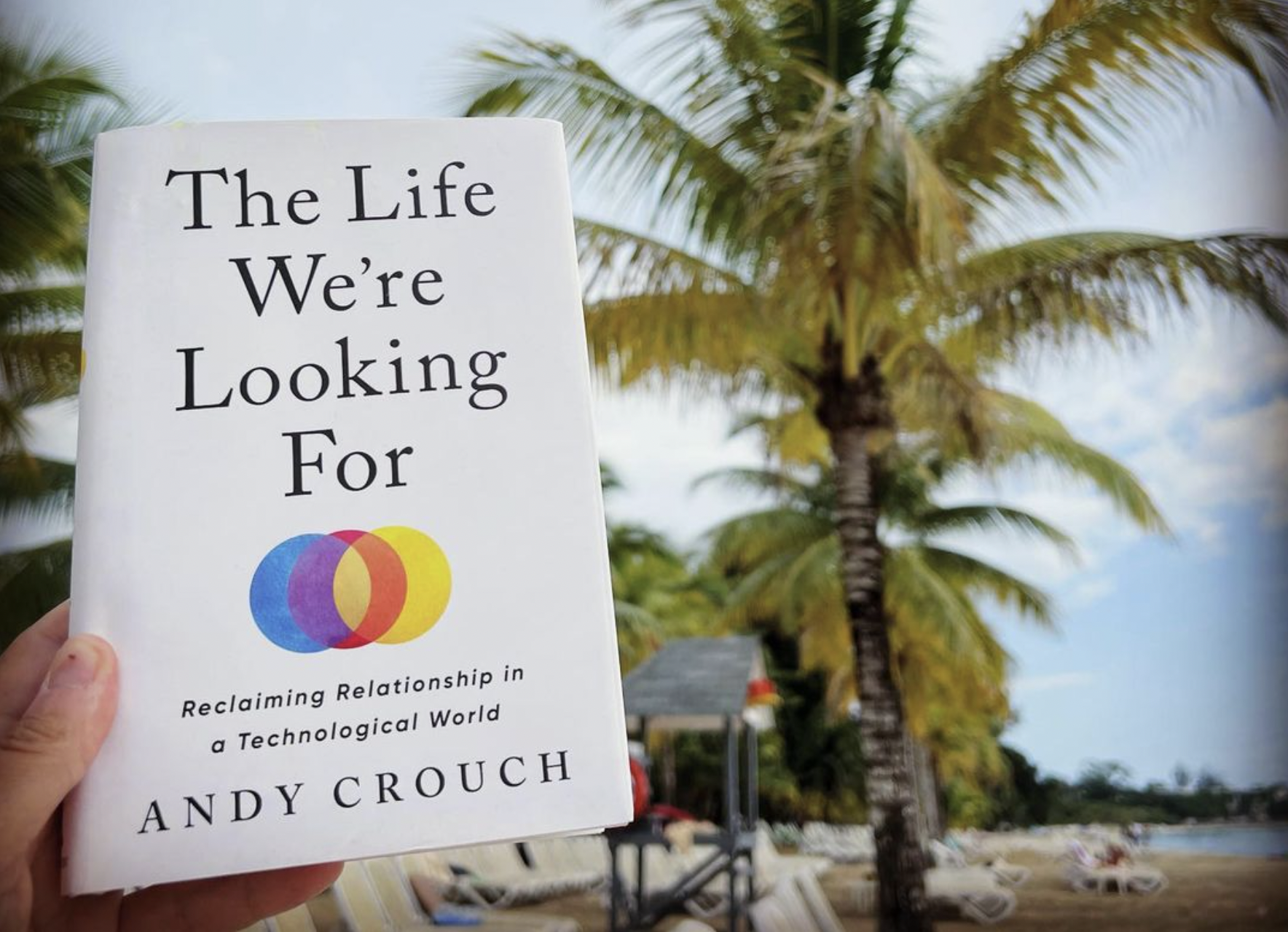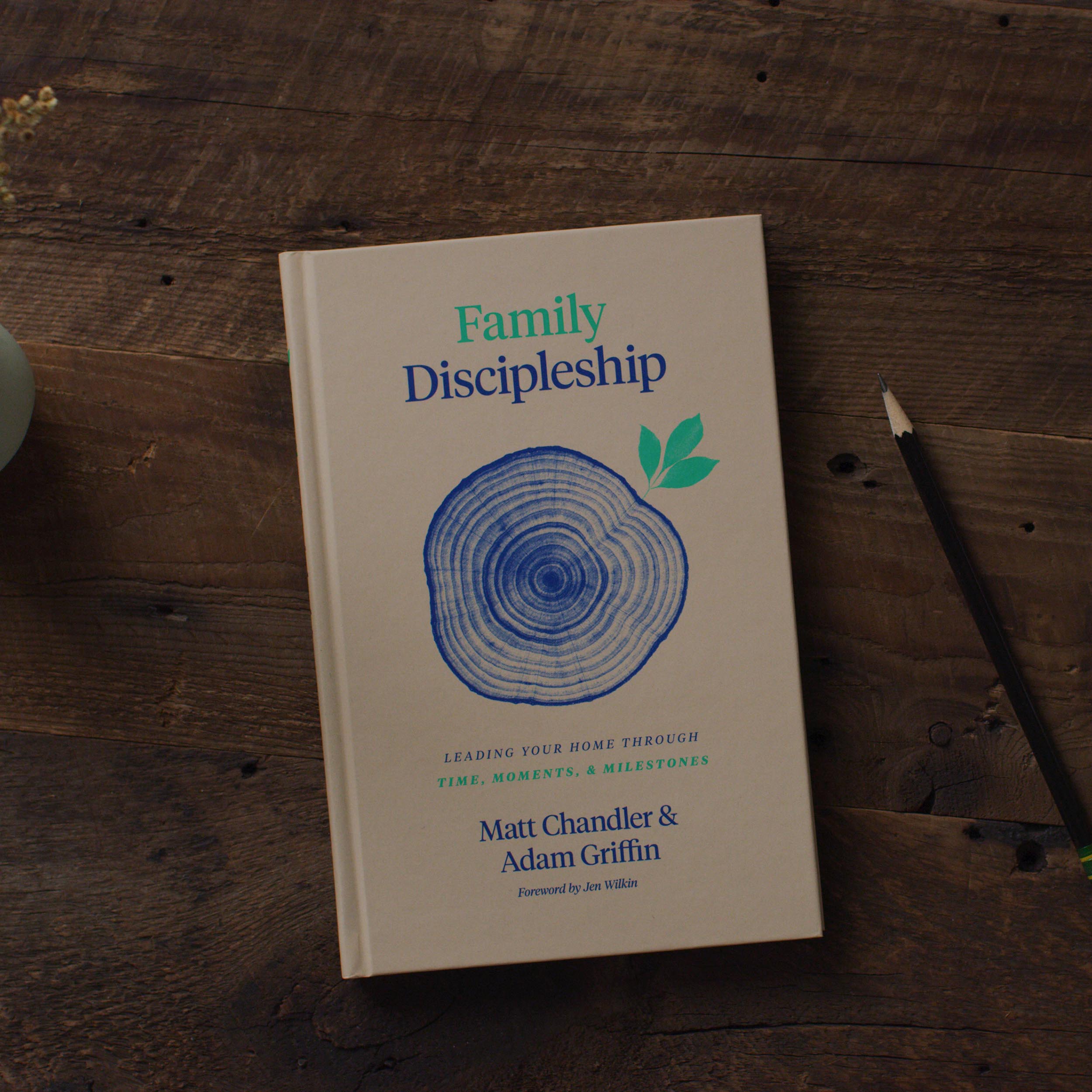
I can’t think of a better place to read about reclaiming relationships than on a beach vacation with family on a Caribbean Island. In fact, buy this book…and then buy a plane ticket…and prepare to dive into a great conversation dealing with the longings of your heart, soul, and mind. I strongly commend The Life We’re Looking for by Andy Crouch, just as I have everything else I’ve ever read that he has written.
Technology has left us all feeling more “connected” than ever before. After all, how else would I be keeping up with my favorite science teacher from the 8th grade? But as much as I love Mrs. Roberts and the fact that she likes the pictures of my kids on Instagram, I haven’t talked to her in almost 30 years and she isn’t going to ask me “how are you really doing?” The “connections” we often claim are truly just busyness that causes us to miss what’s most important. Crouch’s new work helps us identify that feeling of longing and gives us some practical ideas to consider as we take steps to move into The Life We’re Looking For.
I highlighted several things while reading and have posted those notes below…
- The capacity to recognize a face takes up a substantial part of the human brain, evolved over millions of years. In a few decades, we have managed to train our computers to approximate this capacity to the point that our machines can, in a sense, recognize us. p. 6
- …before we knew to look for a mirror, we were looking for another person’s face. p. 11
- The Paradox of Personhood:
- There is a difference between “something” and “someone.” The difference is personhood. – German philosopher Robert Spaemann
- It is when another person’s face and voice recognize us, not for what we can offer them (exploitation) but for what we intrinsically are (contemplation), that we know who we are.
- While personhood can be denied (though never truly taken away) and it can be gravely harmed, it also can be developed. p. 30
- Of all the creatures on earth, we are by far the most dependent, the most relational, the most social, and the most capable of care. When we love, we are most fully and distinctly ourselves. p. 35
- The defining mental activity of our time is scrolling. Our capacities of attention, memory, and concentration are diminishing; to compensate, we toggle back and forth between infinite feeds of news, posts, images, episodes, – taking shallow hits of trivia, humor, and outrage to make up for the depths of learning, joy, and genuine lament that now feel beyond our reach. p. 58
- “Magna opera Domini exquisita in omnes voluntates ejus.” Psalm 111:2 p. 79
- Impacting culture | He was shaped in his youth by a kind of Christianity that aspired to impact culture, but he has come to have a difference picture of his work and mission. “Most of us want to be a force,” Dave Murray says. “But Jesus calls us to be a taste.” p. 130
- Evert technical advance in human history has been borne on the wings of two promises:
- “Now you’ll be able to…”
- “You’ll no longer have to…”
- There are two other consequences of any new device that are restricted capabilities and enforced burdens:
- “You’ll no longer be able to…”
- Now you’ll have to…” p. 140
- You are part of a household if there is someone who knows where you are today and who has at least some sense of how it feels to be where you are. You are part of a household if there is something who moves more quietly when they know you are asleep. You are part of a household if someone would check on you if you did not awaken. p. 153
- We need a place where we cannot hide. We need a place where we cannot get lost. p. 154
- The privacy we cherish is in constant danger of curdling into isolation. p. 160
- The household is the first and most important canopy of trust we need to thrive as human beings-a place where we can always go, a place where we are safe enough to sleep. p. 167
- We have more medicine than ever, but we are by no means well. p. 189
- How many generations can be shaped by one household who gather around a table, recognize one another, and send one another out into the world? p. 213


